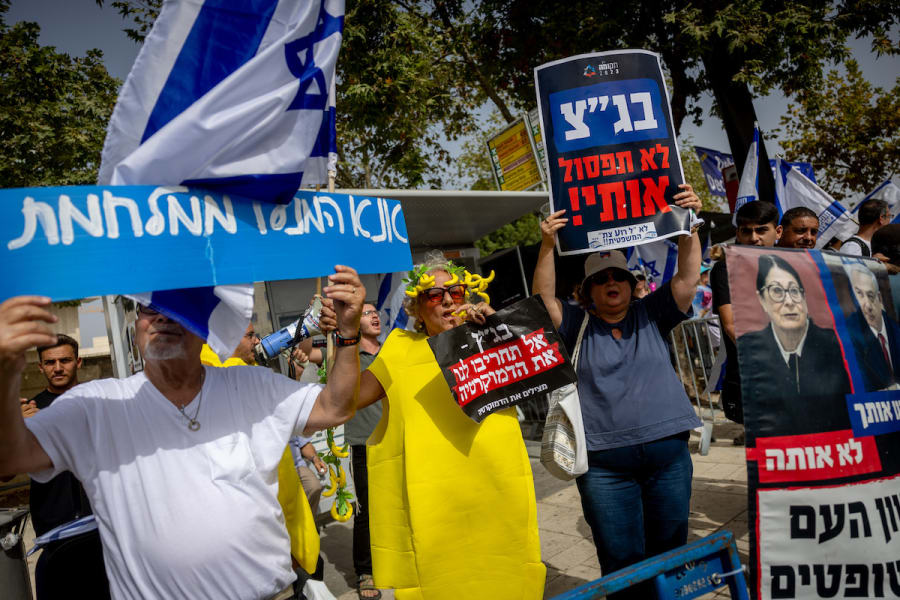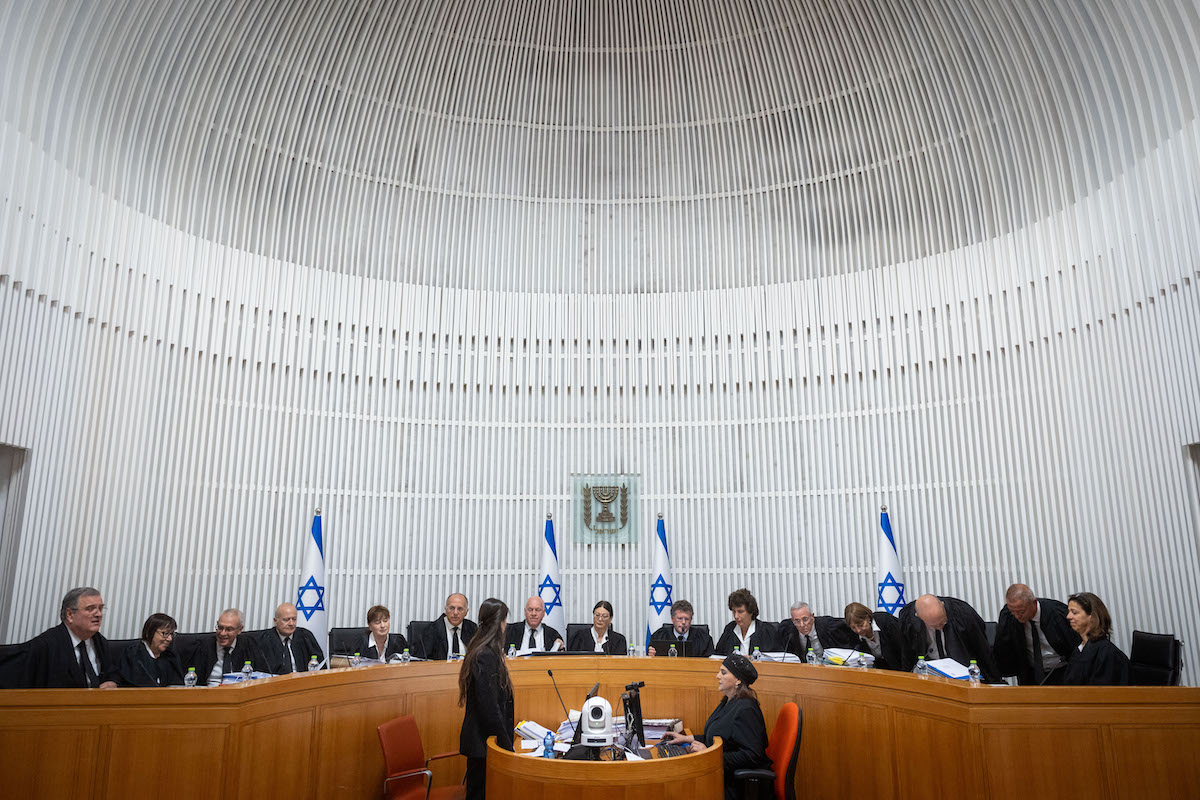Judicial reform crisis comes to a head in fateful High Court hearing
Judges and gov’t representatives spar in contentious discussions

Israeli history was made when all 15 High Court Justices entered the Jerusalem courtroom on Tuesday morning to hear the arguments for and against the unprecedented move to strike down a Basic Law, namely the Reasonableness Standard Law.
The hearing is the high point of a months-long crisis tearing Israeli society apart over the government’s plan to reform the State of Israel's judiciary system.
Dozens of NGOs and activists submitted a total of eight petitions against the law, but the government was the first to lay out its defense arguments.
The government, including Justice Minister Yariv Levin and Prime Minister Benjamin Netanyahu, were represented by attorney Ilan Bombach instead of Israel's State Attorney General's Office, an exception only used in the rare situation in which the government and its legal representation don’t agree on their positions.
Knesset lawyer Yitzhak Bart began the statements and was followed by Constitution, Law and Justice Committee chair Simcha Rothman, one of the judicial reform’s main architects.
Rothman argued that the court was overruling the democratic will of the people to choose their elected officials and, therefore, had no right to intervene.
He was repeatedly interrupted by the judges, who admonished him for “speaking harshly.”
Rothman told the judges that “a privileged elite [the justices of the High Court] will not be able to protect rights in the long term” and implied that the court has become “an oligarchic regime of a [small] group of people,” quoting former Supreme Court justice Moshe Landau.

Next to speak was Bombach, who caused some controversy when he appeared to downplay the importance of Israel’s Declaration of Independence during a wide-ranging discussion with the judges.
“It can't be said that the hastily-signed signatories to the Declaration of Independence gave you the authority for judicial review,” Bombach told the court.
The signatories did not represent the populace, Bombach argued, so they had no authority to establish a constitution.
Judge Alex Stein replied that it was not possible to lay a foundation for fundamental legislation without the Declaration of Independence.
Bomback shot back: “The 37 people who signed it were not elected and did not represent Israeli society at that time. This is unthinkable.”
Stein then responded that “sometimes the first movers have an advantage, they establish a constitution. So did the United States. The founding fathers had little idea what would happen in 200 years.”
Bombach also cautioned the court not to exercise legal review against a Basic Law, referring to it as a “nuclear weapon.”
After Bombach’s lengthy statement, the attorney general office's representative and Attorney Eliad Shraga, the head of the Movement for Quality Government, which submitted one of the petitions, began arguing for the authority of the High Court to strike down the amendment.
Recent comments and questions posed by Israel's High Court justices have provided hints to indicate how they will eventually rule in the case.
Each justice is required to submit his own response to the hearing in a process that is expected to take weeks or even months.
President of the High Court Esther Hayut implied that the judges might interpret the law in a way that would dilute it to the point of uselessness, instead of canceling it.
Several judges also implied that the legislative process was hurried and had technical flaws that could eventually be used to justify a nullification.

The All Israel News Staff is a team of journalists in Israel.
You might also like to read this:

















